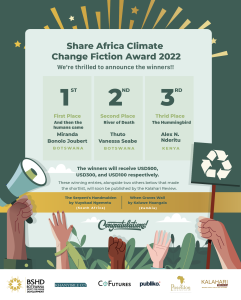GABORONE, Feb. 27 – The government of Botswana today revealed its plans to ban plastic carrier, flat bags in the next 30 to 60 days.
The ban follows several failed attempts to manage or control the menace caused by plastic carrier bags in the environment, informed Tshekedi Khama, the Minister of the Ministry of Environment, Natural Resources and Conservation and Tourism, during a press briefing.
Prior, efforts were made through various strategies such as public education and awareness on the plastic’s proper use like recycling and minimisation of its use. The country further developed a system that regulated the thickness of the carrier bag, with the objective to allow for use of plastic carrier flat bags of 24 microns thickness, whilst prohibiting thinner ones from use in the country. These measures did not yield any positive and sustainable results to curb the proliferation of plastic bags in the environment, hence the 2018 impending ban.
Khama said the ban follows long consultations with stakeholders, both within government and the private sector. He proceeded to call on the youth to apply for funding they can use to set up business that will produce alternative carrier bags made of cotton, as cotton is biodegradable. He advised citizens to set up shop at borders, shops that would sell the biodegradable bags to foreigners and tourists who may enter the country with plastics.
In its pending transition, Botswana is inspired by countries like China and the United Kingdom that have banned plastics in some cities in their countries. In Africa, Botswana will be following in the footsteps of Rwanda and Kenya that have already banned plastics.
Universally, plastics are being slowly phased out as they reduce the aesthetic value of the environment, and they have adverse impacts on human and animal health as they serve as breeding grounds for mosquitoes, and animals die from chocking or are harmed after ingesting, which disrupts the digestive process causing bloating and ultimately death.
Botswana ratified international treaties and protocols on sustainable development, hence it continues to explore ways for the effective management of waste in line with universally acceptable best practices.
Botswana only has four companies that produce plastics that will be affected by the ban, but the ministry is adamant that more jobs will be created by this move. –EndItem-





